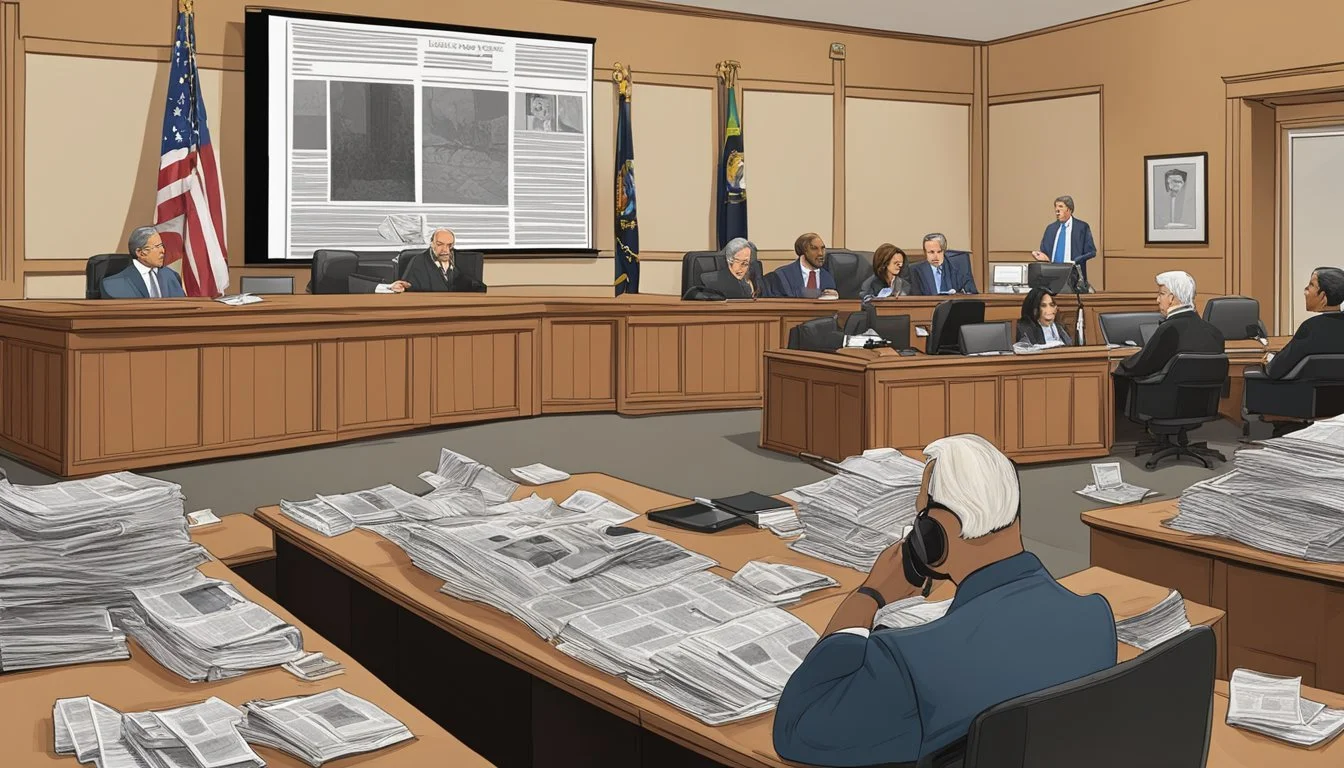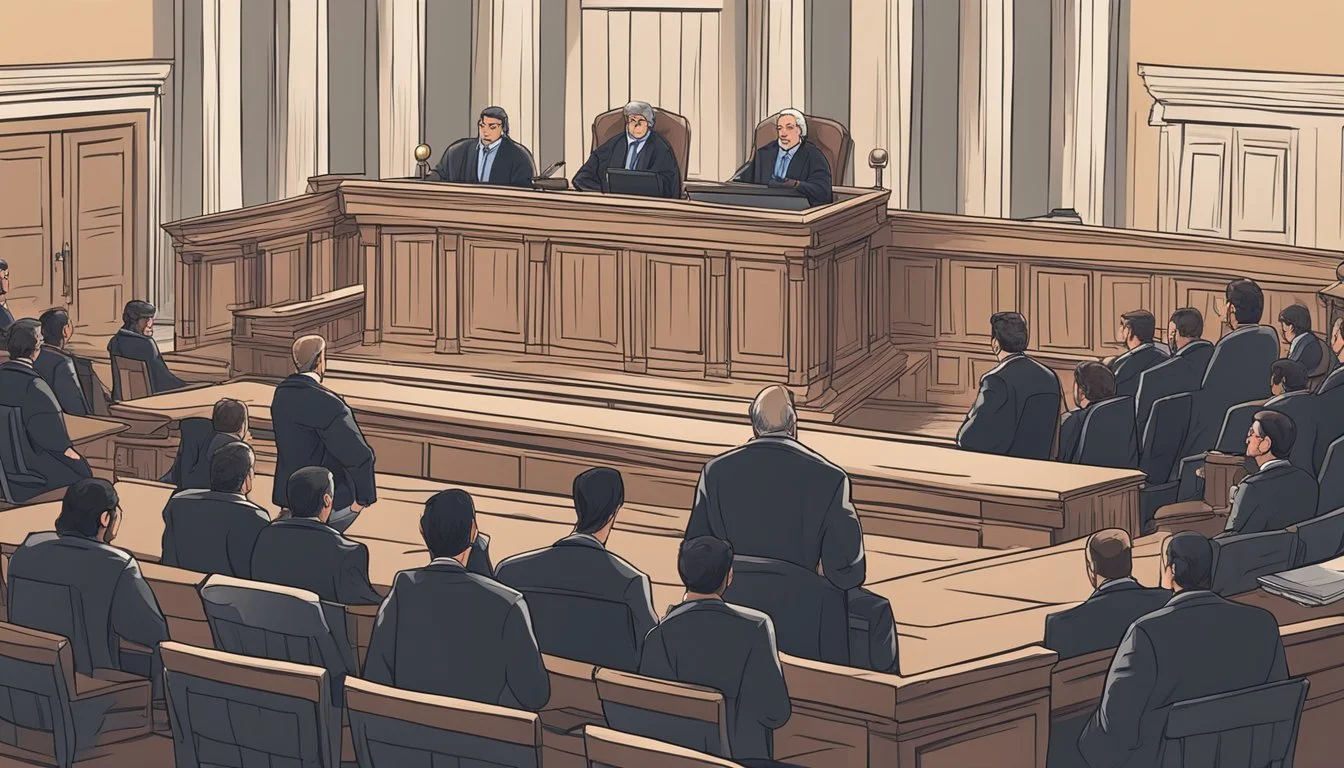"O.J.: Made in America" - The Epic Tale of Fame, Race, and Murder Shocks Viewers
O.J. Simpson's life and infamous murder trial have captivated audiences for decades. The documentary "O.J.: Made in America" offers a comprehensive look at this complex figure and the societal issues surrounding his case. Directed by Ezra Edelman, this five-part series explores Simpson's rise to fame, fall from grace, and the racial tensions exposed during his high-profile trial.
The documentary begins with Simpson's early years in San Francisco and his ascent as a college football star. It then delves into his NFL career and subsequent transition to acting. The series meticulously examines the events leading up to the 1994 murders of Nicole Brown Simpson and Ronald Goldman, as well as the ensuing trial that gripped the nation.
"O.J.: Made in America" goes beyond the courtroom drama to analyze the broader context of race relations in America. It explores how Simpson's case became a flashpoint for discussions about systemic racism, celebrity culture, and the criminal justice system. The documentary's critical acclaim, including an Academy Award win, underscores its significance in understanding this pivotal moment in American history.
Origins and Background
O.J. Simpson's journey from humble beginnings to national stardom shaped his iconic status in American culture. His rise through football and subsequent foray into Hollywood established him as a multifaceted celebrity before his later legal troubles.
The Early Life of O.J. Simpson
Orenthal James Simpson was born on July 9, 1947, in San Francisco, California. Raised in a working-class family, Simpson faced early challenges, including a bout with rickets that left him bow-legged as a child.
Despite this setback, he showed promise in athletics from a young age. Simpson attended Galileo High School, where he excelled in football and track. His athletic prowess caught the attention of college recruiters, leading to a scholarship at the University of Southern California.
Rise to Fame in the NFL
Simpson's college football career at USC was stellar. He won the Heisman Trophy in 1968, solidifying his status as a top NFL prospect. The Buffalo Bills selected him first overall in the 1969 NFL Draft.
In the NFL, Simpson's impact was immediate and lasting. He became the first player to rush for over 2,000 yards in a single season in 1973. His speed and agility earned him the nickname "The Juice."
Simpson's NFL career spanned 11 seasons, primarily with the Bills and briefly with the San Francisco 49ers. He retired in 1979 with numerous records and accolades, cementing his place among football's greatest players.
Transition into Hollywood
As Simpson's football career waned, he leveraged his fame and charisma to transition into entertainment. His acting debut came in the 1974 film "The Klansman" while still an active NFL player.
Post-retirement, Simpson's Hollywood career flourished. He appeared in popular films like the "Naked Gun" series and became a familiar face in TV commercials, most notably for Hertz rental cars.
His affable personality and good looks made him a sought-after celebrity endorser. Simpson's success in entertainment further elevated his status as an American icon, transcending his sports achievements and appealing to a broader audience.
The Murder Trial
The O.J. Simpson murder trial captivated the nation, exposing deep racial divides and reshaping media coverage of criminal proceedings. It involved complex legal strategies, controversial evidence, and intense public scrutiny.
The Victims: Nicole Brown Simpson and Ron Goldman
Nicole Brown Simpson, O.J. Simpson's ex-wife, and Ron Goldman, a restaurant waiter, were found brutally stabbed to death outside Nicole's home in Brentwood, Los Angeles on June 12, 1994. Their murders shocked the community and set off a chain of events that would lead to one of the most high-profile trials in American history.
Nicole had divorced Simpson two years earlier after a tumultuous marriage marked by domestic violence. Goldman was at Nicole's home to return a pair of glasses left at the restaurant where he worked.
Trial Narrative and Key Players
The trial began on January 24, 1995, and lasted nearly nine months. Prosecutors Marcia Clark and Christopher Darden led the case against Simpson, while a "dream team" of defense attorneys, including Johnnie Cochran and Robert Shapiro, represented the former football star.
Key evidence included a bloody glove found at the crime scene and its match at Simpson's home. The prosecution argued this linked Simpson to the murders, but the defense famously had Simpson try on the glove in court, leading to Cochran's memorable phrase, "If it doesn't fit, you must acquit."
DNA evidence played a crucial role, with prosecutors presenting blood samples from the crime scene matching Simpson's. The defense team questioned the reliability of the evidence handling and suggested police misconduct.
Racial Tensions and the Los Angeles Setting
The trial took place in Los Angeles, a city still reeling from the 1992 riots following the Rodney King verdict. This backdrop heightened the racial undertones of the case, with Simpson's defense team arguing that he was being framed by a racist police department.
The predominantly Black jury and the racial divide in public opinion about Simpson's guilt became central talking points. Many viewed the case through the lens of race relations and police misconduct rather than purely as a criminal trial.
Media coverage intensified these tensions, with constant analysis and commentary often split along racial lines. The trial became a national conversation about race, justice, and celebrity in America.
The Verdict and Its Impact
On October 3, 1995, after less than four hours of deliberation, the jury found O.J. Simpson not guilty of the murders. The verdict was broadcast live, with an estimated 100 million people watching.
Reactions to the verdict were starkly divided, often along racial lines. Many in the Black community celebrated what they saw as a victory against a biased system, while others viewed it as a miscarriage of justice.
The trial's impact extended far beyond the courtroom. It changed how the media covers high-profile cases, influenced public perception of the legal system, and sparked ongoing debates about race, celebrity, and justice in America.
Cultural and Media Perspectives
The O.J. Simpson case profoundly impacted American culture and media. It highlighted complex intersections of race, celebrity, and justice while transforming how high-profile trials are covered and perceived by the public.
Media Representation of the Trial
Television cameras in the courtroom brought the Simpson trial into millions of homes. Major networks provided gavel-to-gavel coverage, turning legal proceedings into daytime entertainment. This unprecedented access shaped public opinion and legal strategies.
The media frenzy surrounding the case was immense. News outlets competed for exclusive information and interviews. Tabloids published sensational headlines and rumors.
Many journalists became household names through their trial coverage. The case boosted ratings for cable news networks and influenced future true crime reporting.
Documentary Narratives and Public Perception
Numerous documentaries have reexamined the Simpson case, offering new perspectives and analysis. These films often focus on previously unexplored angles or present evidence in innovative ways.
ESPN's "O.J.: Made in America" provided a comprehensive look at Simpson's life and the societal context surrounding the trial. It won critical acclaim and an Academy Award.
FX's dramatized series "The People v. O.J. Simpson" renewed public interest in the case. It highlighted key players and behind-the-scenes dynamics.
These documentaries have shaped how younger generations understand the trial and its significance in American culture.
Role of Celebrity and Sports in the Case
Simpson's fame as a football star and actor significantly influenced public perception and media coverage. His celebrity status made the case a national obsession.
Sports metaphors were frequently used in trial coverage. Simpson's football career was often referenced, with some commentators drawing parallels between his on-field prowess and legal defense.
The case raised questions about preferential treatment for athletes and celebrities in the justice system. It highlighted the complex relationship between fame, race, and public opinion.
Simpson's fall from grace became a cautionary tale about the dark side of celebrity culture and the dangers of hero worship in sports.
Documentary Series Deep Dive
O.J. Simpson's story has been the subject of several acclaimed documentary series. These productions offer in-depth explorations of his life, career, and infamous trial.
O.J.: Made in America Overview
"O.J.: Made in America" stands as a landmark documentary series. Directed by Ezra Edelman, this five-part epic spans nearly eight hours. The series traces Simpson's journey from football stardom to his fall from grace.
It examines racial tensions in Los Angeles and their impact on the trial. The documentary also delves into Simpson's complex relationship with fame and the black community.
Edelman's work goes beyond the trial, presenting a nuanced portrait of American culture. It explores themes of race, celebrity, sports, and the criminal justice system.
30 for 30 Series and ESPN's Role
ESPN's "30 for 30" series played a crucial role in bringing "O.J.: Made in America" to life. The network provided a platform for long-form sports documentaries.
"O.J.: Made in America" initially aired as part of the "30 for 30" series. Its success helped elevate the series' reputation for high-quality productions.
ESPN's commitment to in-depth storytelling allowed for a comprehensive examination of Simpson's story. The network's resources and reach ensured wide viewership and critical attention.
Production and Filmmaking Insights
Ezra Edelman's approach to the documentary was meticulous and expansive. He conducted over 70 interviews for the series.
The production team gathered extensive archival footage. This included news clips, courtroom video, and personal recordings.
Edelman structured the series chronologically, providing context for Simpson's rise and fall. The filmmaker's attention to detail and narrative craft set a new standard for documentary storytelling.
Critical Acclaim and Awards
"O.J.: Made in America" received widespread critical acclaim. Critics praised its depth, scope, and cultural analysis.
The series won the Academy Award for Best Documentary Feature in 2017. This marked a significant achievement for a long-form television production.
It also earned a Peabody Award, recognizing its cultural impact. The documentary's success highlighted the potential for ambitious, long-form documentary projects.
Legal and Societal Aftermath
The O.J. Simpson case left an indelible mark on the American legal system and society at large. Its repercussions extended far beyond the courtroom, shaping public perceptions and sparking important conversations about race, celebrity, and justice.
Civil Trial and Subsequent Legal Challenges
Following his acquittal in the criminal trial, O.J. Simpson faced a civil lawsuit filed by the families of Nicole Brown Simpson and Ron Goldman. In February 1997, a civil jury found Simpson liable for the wrongful deaths and ordered him to pay $33.5 million in damages.
Simpson's legal troubles didn't end there. He faced numerous challenges in paying the civil judgment, with his assets seized and auctioned off. The Goldman family pursued legal action to collect the damages, leading to ongoing disputes over Simpson's earnings and possessions.
O.J. Simpson's Later Life and Incarceration
In 2007, Simpson's life took another dramatic turn when he was arrested in Las Vegas for armed robbery and kidnapping. He claimed he was attempting to retrieve personal memorabilia, but the incident led to his conviction and imprisonment.
Simpson served nine years in a Nevada prison before being granted parole in 2017. His release garnered significant media attention, reigniting public interest in his case and sparking debates about criminal justice reform.
Consequences for the American Justice System
The Simpson trial exposed flaws in the criminal justice system and raised questions about the role of race, celebrity, and media in high-profile cases. It led to reforms in jury selection processes and increased scrutiny of forensic evidence handling.
The case also highlighted the divide between public opinion and legal outcomes, prompting discussions about the burden of proof in criminal trials versus civil cases. Legal experts continue to study the trial as a landmark case in American jurisprudence.
Impact on the Black Community and Wider Society
The trial's outcome sparked complex reactions within the Black community. While some celebrated Simpson's acquittal as a rare victory against systemic racism, others grappled with conflicting emotions about the case's racial dynamics.
The trial deepened existing racial tensions in America, exposing stark differences in how Black and white Americans viewed the criminal justice system. It prompted difficult conversations about domestic violence, police misconduct, and media representation of Black athletes and celebrities.
These discussions continue to resonate today, influencing ongoing debates about racial equity and justice reform in the United States.
Examining the Cultural Legacy
The O.J. Simpson case profoundly impacted media coverage and true crime storytelling. It reshaped public perceptions of celebrity, race, and the justice system while influencing documentary filmmaking approaches.
Influence on Future Media and Documentaries
O.J. Simpson's trial sparked a surge in true crime content across various platforms. Major streaming services like Netflix, HBO, and Amazon Prime Video now regularly produce high-profile crime documentaries. The case set new standards for in-depth, long-form storytelling in the genre.
Many documentaries now adopt a similar multi-part format to explore complex cases. This approach allows for deeper analysis and context. The success of O.J. Simpson documentaries also encouraged streaming platforms to invest heavily in true crime content.
Filmmakers now often incorporate archival footage, expert interviews, and social commentary. This multifaceted approach aims to provide a more comprehensive understanding of high-profile cases.
The Evolution of True Crime Storytelling
The O.J. Simpson case revolutionized true crime storytelling techniques. Documentaries now frequently blend courtroom drama with broader societal issues. This shift has led to more nuanced explorations of race, celebrity, and media influence in criminal cases.
Streaming platforms like Disney+ and Prime Video have embraced this evolved format. They often produce series that examine cases from multiple angles over several episodes. This approach allows for a more thorough exploration of complex topics.
The focus has also shifted towards examining the cultural impact of high-profile crimes. Documentaries now often delve into how cases like Simpson's shape public discourse and societal attitudes.




